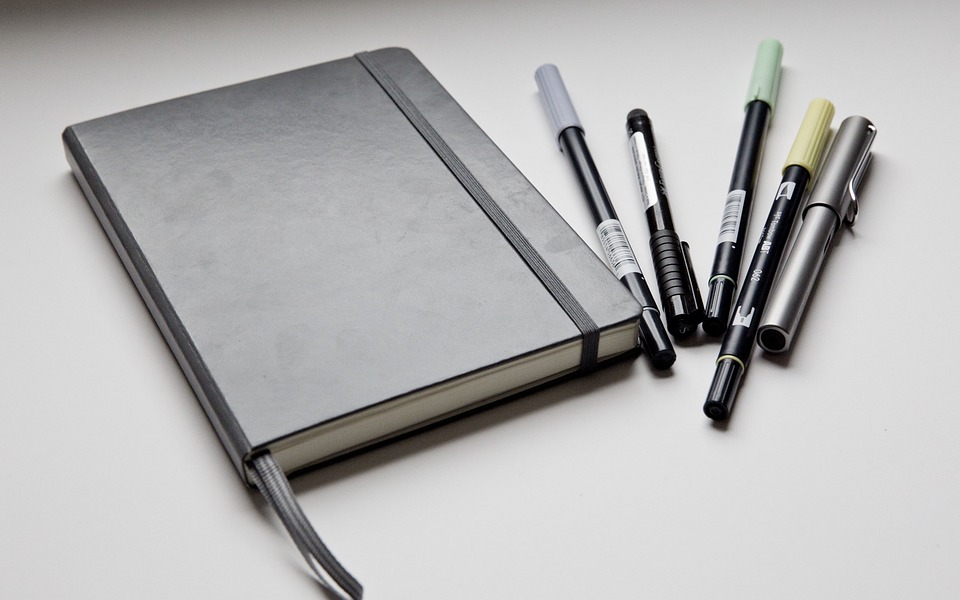
Journaling is a handwritten record of our thoughts and emotions. There are actually no guidelines, but most of the journaling is a regular exercise. Journaling is a means to keep track of your life. As well as figure out what makes them content or frustrated. Journaling is an emotional, psychological, and spiritual activity that can help you develop healthy “emotional muscles” to cope with life’s adversities. Luckily, one of the most successful acts of self-care is also one of the cheapest. Let us see in detail the perks of journaling.

The Benefits Of Journaling
Improve the immune system.
Research reveals that people who use writing to help understand their feelings get the most benefit. Journaling of traumatic experiences lets you get to grips with them. Thus, this limits the effect of stressors on your physical health.
Helps you repair your wounds quicker
Long-term distress can increase your body’s stress hormone levels, such as cortisol, which weaken your immune system. So writing about distressing events reduces the cortisol levels and helps you to recover more quickly.
Enhances your communication skills
When you write, you learn to articulate yourself better. As a result, you will be able to express your emotions to others more effectively. The more self-aware you are, the easier it would be for others to understand you. Writing facilitates clear thinking, which facilitates clear communication.
Keeping a journal will help you feel better
Since you are sharing your feelings rather than leaving them enveloped, writing down your worries raises your mood. It also keeps things in perspective, reminding you that no matter how bad things seem to be, there are remedies and things to be thankful for right now.
Relieves depressive symptoms
Journaling is so beneficial that mental health professionals prescribe it for managing depressive problems – and it also helps therapy function easier. It also allows you to show appreciation and note what is going on in your life, no matter how insignificant it might be. When you write down your problems, they become more manageable.

There are innumerable benefits of journaling. The best one is that you get a space to talk and hear yourself, to be more independent. Over a period of time, you will discover yourself. And, seriously what could be better than that?
Types of Journals to Keep
Let us get started by looking at the various types of journals available.
The Blank Notebook Journal
A blank notebook journal is ideal if you are truly excited to write. Your blank notebook can only be used for one thing: journaling! It is your clean slate, ready to be filled with anything you want to write about. This journal, out of all the styles to carry, gives you the most artistic freedom.
The Bullet Journal
Do you have a problem with procrastination? Also, any trouble prioritizing your tasks? Oftentimes, We may get too excited about our new ideas and set unreasonable goals, which can lead to disappointment. Try keeping a Bullet Journal(BuJo) to help you prioritize your productivity if you plan to tackle these obstacles. However, BuJo can be minimal as well as detailed. To learn a detailed BuJo setup, click here.

The Dream Journal
In a symbolic and fully abstract way, we process all of the events that occurred over the day, or over a longer period of time, while dreaming. It is always a smart idea to reflect upon our dreams. Unfortunately, we tend to fail in recalling our dreams. It is easier to remember details if you keep your dream diary next to your bed and write down your dream as soon as you wake up.
Artistic Journal
You do not have to be an artist to express yourself creatively. Anyone can experiment on paper with a pencil, crayon, or whatever they want. Writing down your thoughts after visiting museums, galleries, festivals, theatre performances, and other art exhibits is also a fun thing to do. To make a page more fun, you can clip a ticket or a picture to it.
Gratitude Journal
Here is a small but optimistic thing you could be doing to change your overall outlook on life. Writing down what you are grateful for in your life takes just 5 minutes of your day. The simple truth is to keep things upbeat, and the key aim of gratitude journaling is to maintain an optimistic and appreciative mindset.

Travel Journal
Travel journaling is much more than just a list of what you did, ate, and saw. It is all about how it made you feel, the sensations you experienced, and how it exercised all five of your senses to leave you with a lasting impression of the destination.
Ideas Journal
If you are more of an imaginative person who wants to keep track of all the weird, clever, helpful, amusing, or valuable thoughts that come to mind, a separate notebook may be a good idea. Also, you do not have to write down only thoughts. However, You can also draw, take pictures, and make lists.
There are undoubtedly more journals to maintain than the ones mentioned above since you can write a journal on almost anything. Different kinds of journals serve different functions, so you must see journaling as a relaxing and satisfying experience since that is just what it should be.
How To Journal

Set up a Schedule
Have a plan for when you will write in your journal. Build a routine to help you turn your writing into a habit. Choose a time and days of the week that you intend to write and set a note on your calendar so you do not forget. Journaling will become a normal and routine aspect of your day that you will look forward to if you schedule it at the same times every day.
Discover a suitable writing spot
It is beneficial to be in a room where you can reflect and relax while writing. It is better to sit in a private environment with no noise. Allow yourself to concentrate on your writing without being distracted. Make sure you can sit up straight and comfortably. It is always nice to have a desk or a writing room.
Ask yourself questions
What happened on that particular day? What was your reaction to that? Is there something that has sparked your interest? What is the reason for this? Consider the reflections and emotions you have been experiencing. Do you like the person you have evolved into? What contribution do you make to the world? What are your main assets? Your favorite feature of your personality? What three words better characterize you? What is your motivation? To sum up, keep asking yourself questions that help you find answers. Remember, a question correctly framed is in itself an answer.
Start Small
It is not necessary for your journaling to deliver Pulitzer Winner writing. For now, you do not have to stick to a life activity. Begin with a single line that expresses how you are feeling or thinking. Begin with a one-week trial period. Start super small, whatever it is. When you can expand on it and write more deeply, you will know.
 When it comes to writing a journal, there are no rules. The pages are there for your eyes. Be the craziest version of yourself. Bring your most adventurous self to the table. Anything and everything that comes to mind should be poured out. There is no one-size-fits-all approach to journaling. There is no one-size-fits-all approach to journaling. There is just one way to journal, and that is your way. Make that special. Make that fun and interesting. Just go for it.
When it comes to writing a journal, there are no rules. The pages are there for your eyes. Be the craziest version of yourself. Bring your most adventurous self to the table. Anything and everything that comes to mind should be poured out. There is no one-size-fits-all approach to journaling. There is no one-size-fits-all approach to journaling. There is just one way to journal, and that is your way. Make that special. Make that fun and interesting. Just go for it.
Hopefully, you find this blog inspirational and helpful, and then you are prepared to start your journaling trip. However, journaling is just one form of self-discovery. Eating, praying, traveling, loving and many more ways exist. Click here to read an article about one such movie on self-discovery.
Images courtesy: Pixabay.






[…] Another practice of self-love is journaling your thoughts. Read this article about the basics of journaling, here. […]
[…] Also read Journaling 101: Your Guide to Self-Discovery. […]
[…] For more articles, click here: Journaling 101: Your Guide to Self-Discovery. […]